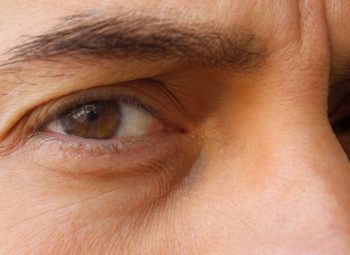
Ask These Important Questions Before Your LASIK Laser Eye Surgery
If you are considering ditching your eye glasses and contact lenses for a more permanent solution, LASIK laser eye surgery may be perfect for you. Approved by the FDA in 1999, LASIK is the most popular refractive eye surgery worldwide. In fact, approximately 700,000 people choose to under go this minimally invasive eye surgery every year. Every patient’s journey towards better eyesight is unique. Consult with a LASIK surgeon before your procedure in order to determine the best eye surgeon for your needs. Read on for seven questions you should always ask a LASIK surgeon to determine if they are the best surgeon for you.
1. Am I a Good Candidate for LASIK Eye Surgery?
Before committing to surgery, make sure to discuss any conditions that could interfere with your LASIK results or even disqualify you as a candidate entirely. There are no “stupid” questions to ask your LASIK surgeon when it comes to your eye health. Always be completely honest with your surgeon. This includes your medical history and medications you currently take or have discontinued within the last year.
Medications and health conditions that dry out your eyes are the most common reason to disqualify a patient from LASIK. Autoimmune diseases, diabetes, and other conditions that increase your chance of infection can also result in disqualification. However, if you have been previously told you are not a good candidate, you may have more options than you think. Your surgeon might offer an alternative to LASIK, such as Custom LASIK.
2. What Kind of Results Can I Expect?
While the vast majority of people see a major improvement to their vision after LASIK surgery, this isn’t true for everyone. Ask your surgeon what sort of results you can expect. Every patient’s eyes are different. Treatment results vary on a case by case basis. A clear set of expectations can go a long way to helping you decide if LASIK is right for you.
3. What Kind of LASIK Technology Do You Use?
LASIK is not one single piece of equipment or technique. It is actually a set of closely related procedures assisted by laser technology. Different patients benefit from different technologies. Here at NeoVision, we have six different LASIK technologies available, depending on your optical distortions, the thickness of your cornea, and other factors.
If you were told in the past or by another surgeon that your cornea was too thin for conventional LASIK, you may be eligible for IntraLase LASIK. If you suffer from higher order visual aberrations—decreased contrast sensitivity or night vision, ghosting (“double” vision), starbursts, glare, shadows, halos—our CustomVue LASIK technology might be able to help you where conventional LASIK cannot. IntraLase and CustomVue can be combined for incredible safety and precision. Learn more about the surgical and diagnostic equipment we use for custom LASIK.
Many LASIK eye centers don’t have access to every option. They may choose to use a riskier or less effective procedure simply because they can’t afford or have the expertise to use the technology for a safer one. It is imperative you ask your surgeon the exact technology they will be using, and which options they have available.
4. Will the Surgeon Perform the Pre-Op Assessment?
In some eye centers, one opthamologist will perform the pre-op assessment and another will perform the surgery. The most accurate assessment is crucial for the best results and fewest complications. Therefore it is much better when one surgeon does both the assessment and surgery. This also ensures that you will meet your surgeon prior to your surgery and develop trust. Here at NeoVision, Dr. Tandon performs all pre-op assessments and surgeries for LASIK.
5. What Post-Operative Care Do You Offer?
LASIK complications are rare, but thorough post-operative care is critical to minimizing risk and maximizing the results of your surgery. While your vision will usually improve dramatically within 24 hours, and you can often return to work in a few days, the full healing process can take several months.
Ask your surgeon what to expect after LASIK surgery, including what follow-up appointments and care you will receive. Your doctor should provide clear and easy to follow aftercare instructions. This should include medications and activities you should avoid while recovering from laser eye surgery. Your aftercare should also include medications (usually eye drops) prescribed for any soreness or dryness you might experience after the operation.
6. What is Your LASIK Success Rate?
You should always make an informed decision. When you meet your LASIK surgeon, it is perfectly reasonable to ask them how many LASIK surgeries they have performed. It is also perfectly acceptable to ask what their success rate is. It is not impolite or rude. After all, you are putting your health and vision into their hands. An experienced LASIK surgeon will likely have performed hundreds, if not thousands, of refractive surgeries over the years. An expert surgeon will not only have at least a 90% success rate, but also an extremely low incidence of moderate to severe complications.
If your surgeon is relatively inexperienced, you will have to decide if you are comfortable with that. Just because a surgeon has not done a procedure very many times does not mean they are bad. After all, great, experienced surgeons were once inexperienced themselves. If your case is especially complicated, you might want to opt for a more veteran surgeon.
7. Can Insurance Help Me Pay for My LASIK Surgery?
Unfortunately for most patients, insurance rarely covers LASIK. Insurance companies consider LASIK an elective surgery. However, a small percentage of people may get partial or complete coverage. These are usually either people whose life could be at risk if their vision is impaired on the job, such as firefighters and police officers, or if medical conditions make glasses and contacts impossible.
That said, many eye surgeons offer flexible payment options to their patients. Make sure to ask your doctor if they have any LASIK financing options available.
Have All Your Questions Answered by the LASIK Surgeons at NeoVision Eye Center
You should always feel free to ask questions of your LASIK surgeon. At NeoVision our board-certified ophthalmologists are dedicated to helping you find the personalized vision-correcting solutions you deserve. We hope we have armed you with a set of questions to ask to ensure the best possible result for your LASIK surgery, no matter who performs it.
If you have additional questions to ask of a LASIK surgeon, we offer free consultations.





